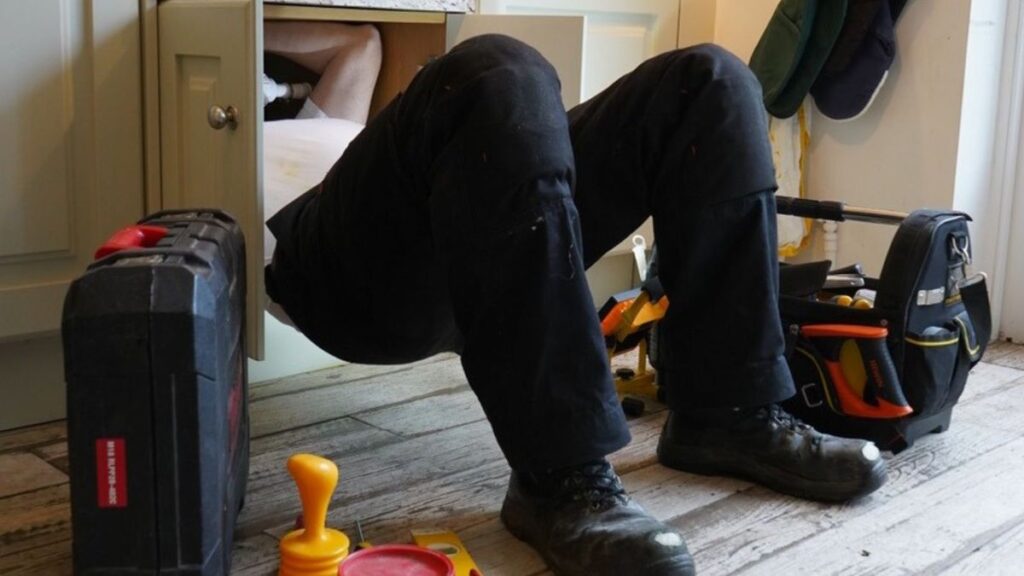
Plumbing disasters can be a homeowner’s worst nightmare, causing extensive damage, high repair costs, and significant inconvenience. However, many of these disasters can be prevented with early detection and routine maintenance.
Here, we’ll explore five common plumbing disasters, how to spot the warning signs with the help of plumber in Chatswood, and what steps you can take to avoid them.
Contents
1. Burst Pipes
Warning Signs:
- Unusual Sounds: If you hear banging, clanging, or gurgling noises when using your water fixtures, it could indicate high water pressure or pipe obstructions.
- Water Pressure Changes: A sudden drop in water pressure can be a sign of a pipe problem as per the plumber in Chatswood.
- Wet Spots and Water Stains: Check for damp spots or stains on walls, ceilings, and floors, which could indicate a hidden leak.
Prevention:
- Insulate Pipes: During cold weather, insulate your pipes to prevent freezing and subsequent bursting.
- Regular Inspections: Periodically inspect exposed pipes for signs of wear or leaks.
- Water Pressure Management: Ensure your home’s water pressure is set at a safe level. High water pressure can strain pipes, leading to bursts. Installing a pressure regulator can help maintain safe levels.
2. Clogged Drains
Warning Signs:
- Slow Draining Water: Water pooling around your feet in the shower or slow drainage in sinks can indicate a clog.
- Unpleasant Odors: Foul smells emanating from drains can be a sign of a blockage or buildup.
- Gurgling Noises: Gurgling sounds from drains when water is flowing can indicate a problem with the drain venting.
Prevention:
- Avoid Pouring Grease Down Drains: Grease can solidify and cause blockages. Instead, dispose of grease in the trash.
- Use Drain Screens: Install screens over drains to catch hair, food particles, and other debris.
- Regular Cleaning: Periodically clean drains with a mixture of vinegar and baking soda, followed by hot water, to break down buildup.
3. Water Heater Failures
Warning Signs:
- Inconsistent Hot Water: If your water temperature fluctuates or you run out of hot water quickly, your water heater may be struggling.
- Strange Noises: Popping, banging, or rumbling noises from the water heater can indicate sediment buildup.
- Leaks or Puddles: Water pooling around the base of your water heater is a clear sign of a leak.
Prevention:
- Annual Maintenance: Have a professional inspect and maintain your water heater annually. This includes checking the anode rod, which prevents rust, and flushing the tank to remove sediment.
- Temperature Setting: Keep the temperature setting at 120 degrees Fahrenheit to prevent scalding and reduce strain on the heater.
- Replace Old Units: Water heaters typically last 8-12 years. If yours is nearing the end of its lifespan, consider replacing it before it fails.
4. Sewer Line Backups
Warning Signs:
- Multiple Drain Issues: If multiple drains are slow or backed up, it could indicate a problem with your main sewer line.
- Sewage Odors: Unpleasant sewage smells in your yard or home can signal a backup or leak in the sewer line.
- Lush Patches of Grass: Areas of your lawn that are unusually green and lush can indicate a sewer line leak, as the sewage acts as a fertilizer.
Prevention:
- Avoid Flushing Non-Flushables: Only flush toilet paper and human waste. Items like wipes, feminine hygiene products, and paper towels can cause clogs.
- Tree Root Management: Tree roots can infiltrate sewer lines. Avoid planting trees near sewer lines and consider having a plumber inspect your lines if you have large trees on your property.
- Regular Inspections: Have a professional inspect your sewer line periodically, especially if you live in an older home or have experienced issues before.
5. Leaky Faucets and Fixtures
Warning Signs:
- Dripping Sounds: The most obvious sign of a leaky faucet is the constant dripping sound, even when the tap is off.
- Higher Water Bills: An unexplained increase in your water bill can indicate a leak.
- Water Damage: Look for water stains or damage around sinks, bathtubs, and other fixtures.
Prevention:
- Replace Worn-Out Seals: Faucets have rubber or silicone washers that can wear out over time. Replacing these can stop leaks.
- Install Quality Fixtures: Investing in high-quality fixtures can reduce the likelihood of leaks and prolong the life of your plumbing.
- Regular Tightening: Ensure that faucet handles and connections are tight. Loose parts can lead to leaks.
Final Thoughts
By being vigilant and proactive, you can avoid many common plumbing disasters. Regular inspections, maintenance, and prompt repairs can save you time, money, and stress. If you notice any warning signs, don’t hesitate to call a professional plumber to assess and address the issue. With these tips, you can keep your plumbing in good working order and avoid major disasters.For homeowners in Chatswood, balancing DIY efforts with professional plumbing services ensures a well-maintained and efficient plumbing system.
By approaching plumbing repairs with caution and knowledge, you can keep your home’s plumbing in top shape and avoid being drowned out by unexpected issues.
